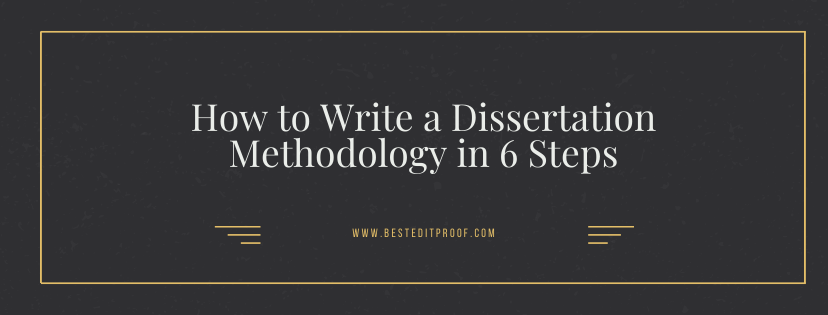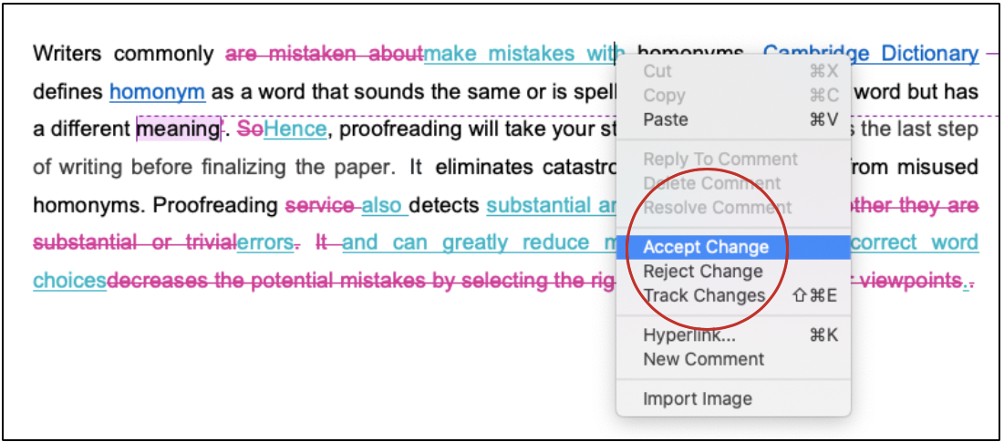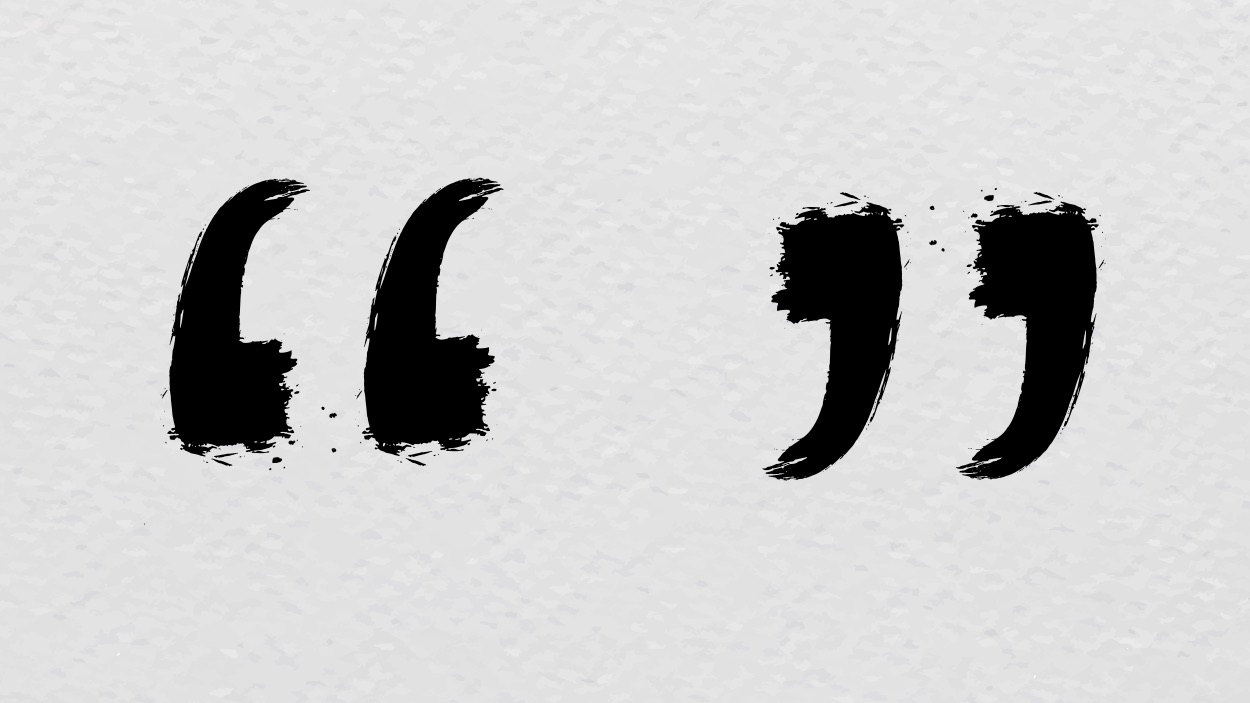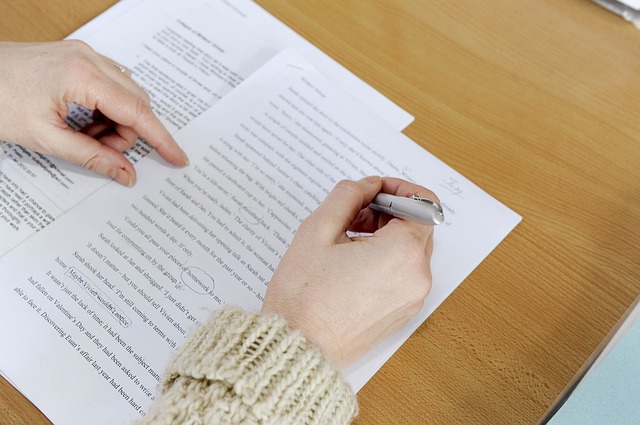A methodology section explains the entire process of data collection and analysis based on logic and philosophy. This section is an unavoidable part of a dissertation or a research paper. Considering errors in the methodology section enervates the entire dissertation. Here, we bring you a general guide on the steps to compose a flawless methodology section for a dissertation.

This brief guide shows you how to write a methodology section for a dissertation. To give you an opportunity to practice proofreading, we have left a few spelling, punctuation, or grammatical errors in the text. See if you can spot them! If you spot the errors correctly, you will be entitled to a 10% discount.
The term ‘‘methodology’’ itself invokes its definition. However, it is not just describing the methods. A perfect research methodology for a dissertation carries out the solid philosophical ground along with explaining the methods used. In simple words, a methodology section explains the entire process of data collection and analysis based on logic and philosophy. Initially, a methodology is written to provide enough information on how the entire research is completed.
The methodology is an unavoidable part of a dissertation or a research paper. Considering errors in the methodology section enervates the entire dissertation. Here, we bring you a general guide on the steps to compose a flawless methodology for a dissertation.
1. Give an outline of the research design
On the Internet, you may find various guides that completely overlook this integral part. Before writing a methodology for a dissertation, you need to clarify which research design you are utilizing. There are multiple aspects of research designs. The following three designs are considered the most common research designs used in academic studies and dissertations.
Experimental designs
Descriptive designs
Review
Experimental design discusses the process in which the participants are divided into two or more groups to execute the same topics.
Descriptive designs explore the idea and connection between two inventions. Simply, its purpose is to state any topic precisely and systematically.
The review discusses the insights gained in secondary research. It also carries out how these insights influence research policies.
Research philosophy is the essence of any research. We often notice that some researchers knowingly or unknowingly avoid this part. They just put force on the collection and scrutiny of data. If your dissertation cannot connect to the philosophy of the reader, it is hard for readers to get the essence of the research. It not only makes the paper easier to understand but engaging enough to communicate with the readers. According to a study, there are mainly four types of research philosophies.
Pragmatism
Positivism
Realism
However, apart from these four, postmodernism is also a very popular philosophical idea that rejects the concept of gaining objective knowledge.

A perfect methodology is incomplete without mentioning the research approach. It is initially divided into two approaches: ‘‘deductive approach’’ and ‘‘inductive approach.’’
The deductive approach generally discusses a scientific investigation or specific theory. Though it is well-suited with the positivist philosophical theory, it is compatible with other philosophies too. The researchers need to study other researchers and also phenomenal theories on his or her topic in this approach.
Contrarily, inductive research is about exploring a specific phenomenon and utilizing the results to execute a new theory. It works with interpretivism or even with postmodernism.
In simple words, deductive research includes theory-based attempts, and inductive research consists of a findings-led approach.
The methodology must introduce the research methods used in the dissertation whether it is quantitative or qualitative.
Quantitative research: Quantitative research method is mainly utilized to collect numerical data. The method is specifically used when you are counting, categorizing, or tracing any data pattern. Students or researchers find quantitative data through experiments, existing data, and surveys. Simply, quantitative data are used in the statistical calculation.
Qualitative research: Qualitative research technique is utilized to find non-statistical data. Here, the researchers require categorizing the information based on data collection rather than utilizing numeric to generate graphs or charts. While developing a hypothesis, this research paper plays a crucial role. Researchers can collect data from interviews, focus groups, and personal observation.
Take note that choosing the research methods largely depends on the requirements of your research. However, after completing the methodology, make sure to get it checked by professional proofreaders and editors.
· How to Find a Reliable Proofreading Service: A Brief Guide
· How Much Do Proofreading and Editing Cost?
· 8 Things to Consider Before Hiring Online Editing or Proofreading Services
· Guide to Editing and Proofreading Before Submitting a Manuscript
No matter what methodology you have chosen, you have to focus on the following points:
Explain sampling strategy.
Clearly state the procedure of the research paper.
Mention how you collect the data. (Data collection)
Explain how data are analyzed for your research. (Data analysis). Suppose you have written in qualitative strategy like thematic analysis, mention the researcher you have followed.
Mention the validity of the data and result.
Discuss all ethical aspects of your research paper.
As we always mention it is common for humans to make mistakes. In dissertation writing, editing and proofreading services are essential to ensure the credibility of the content. There can be several mistakes related to grammar, punctuation, syntax, sentence construction, and other minor errors. Consulting an expert for amending such errors doesn’t only save your time but also ensures consistency and error-free writing in your dissertation.
Moreover, if your dissertation is traced with some major mistakes, an editor plays an exceptional role in editing the part and rewrite it for you. Where proofreading deals with grammar, spelling, punctuation, and other minor errors, editing deals with the analysis and core amendments, including formatting, referencing, and many more. Irrespective of native or non-native speakers, it is a smart decision to seek assistance from experts.
Don’t drift from your objective and the purpose of your dissertation.
Explore scholarly research papers and their methodology sections to have a better idea.
Plan a proper writing structure.
Understand your audience and target group.
Don’t make mistakes in citing relevant sources. You may use APA and MLA citation
Refer to all the hurdles you have experienced while writing your dissertation.
Make sure to rectify grammatical and punctuation errors.
Ensure that the section is readable and doesn’t consist of long and complex sentences. Long sentences can hamper the tone of the methodology.
Take note that experts review your research paper for any mistakes in grammar, punctuation, and sentence construction, etc., and fix all the issues to ensure the highest quality. Moreover, a professional service like Best Edit & Proof ensures that this part is free from plagiarism.

Best Edit & Proof expert editors and proofreaders focus on offering manuscripts with proper tone, content, and style of academic writing, and also provide an upscale editing and proofreading service for you. If you consider our pieces of advice, you will witness a notable increase in the chance for your research manuscript to be accepted by the publishers. We work together as an academic writing style guide by bestowing subject-area editing and proofreading around several categorized writing styles. With the group of our expert editors, you will always find us all set to help you identify the tone and style that your manuscript needs to get a nod from the publishers.
You can also avail of our assistance if you are looking for editors who can format your manuscript, or just check on the particular styles for the formatting task as per the guidelines provided to you, e.g., APA, MLA, or Chicago/Turabian styles. Best Edit & Proof editors and proofreaders provide all sorts of academic writing help, including editing and proofreading services, using our user-friendly website, and a streamlined ordering process.
Visit our order page if you want our subject-area editors or language experts to work on your manuscript to improve its tone and style and give it a perfect academic tone and style through proper editing and proofreading. The process of submitting a paper is very easy and quick. Click here to find out how it works.
Our pricing is based on the type of service you avail of here, be it editing or proofreading. We charge on the basis of the word count of your manuscript that you submit for editing and proofreading and the turnaround time it takes to get it done. If you want to get an instant price quote for your project, copy and paste your document or enter your word count into our pricing calculator.
Contact us to get support with academic editing and proofreading. We have a 24/7 active live chat mode to offer you direct support along with qualified editors to refine and furbish your manuscript.
Follow us on Twitter, LinkedIn, Facebook, Instagram, and Medium.
For more posts, click here.
How to Determine Variability in a Dataset
14.10.2023
How to Determine Central Tendency
19.02.2023
How to Specify Study Variables in Research Papers?
14.01.2023
Population vs Sample | Sampling Methods for a Dissertation
14.01.2023
7 Issues to Avoid That may Dent the Quality of Thesis Writing
18.12.2022
How to Ensure the Quality of Academic Writing in a Thesis and Dissertation?
04.12.2022
How to Define Population and Sample in a Dissertation?
03.12.2022

Academic essay writing is an essential part of college life since writing essays is one of the most common assignments in colleges or universities. Some claim that it is an easy job while others assert it is very challenging. International students, particularly, find the task very compelling. No doubt it is a challenging issue because one has to devote considerable time to studying, reading, and examining the evidence. That requires self-sacrifice to learn how to write an academic essay. Although it seems challenging at first, it will get easier with practice and by following the steps detailed in this article.
Continue Reading
Writing an academic paper is not similar to other forms of writing. It requires patience, knowledge, and the use of proper sentence construction. An academic paper should be informative, polished, and well structured. As a student or researcher, you should learn about bad habits and not repeat them in your academic writing. In this article, we discuss 6 bad habits to avoid in academic writing.
Continue Reading
Academic writing is an intricate task. Add to this the troublesome misconception surrounding it and things seem much more unwelcoming than they already are. Almost every high-school student, college student, and/or research scholar has come across and maybe fallen for certain writing myths and burdened themselves with unneeded knowledge. In this article, we will look at 6 common myths that you should avoid in academic writing.
Continue Reading
Whenever you use words, facts, ideas, or explanations from other works, those sources must be cited. Academic referencing is required when you have copied texts from an essay, an article, a book, or other sources verbatim, which is called quotation. You also need referencing when you use an idea or a fact from another work even if you haven’t used their exact expression.
Continue Reading
We may have qualitative, quantitative, and mixed methods in dissertations. This blog will elaborate on quantitative dissertations, qualitative dissertations, and mixed methods dissertations by addressing their similarities and differences.
Continue Reading
Formal writing is essential to academic essays, a thesis, or a dissertation. Many issues may dent your writing. This article covers 7 critical ones to avoid that may affect the quality of thesis and dissertation writing.
Continue Reading
Finding a dataset's middle or average is critical and involves measuring central tendency. The central tendency's most common measures include the mode, median, and mean. The mode is the most repeated measure in a data set.
Continue Reading